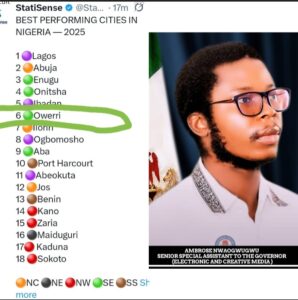

Why Many Nigerians Speak Good English but Remain Poor: A Closer Look at Education, Entrepreneurship, and Wealth Creation
English is a core subject in Nigerian schools, and it’s no surprise that many Nigerians are fluent in English. Yet, while fluency in English has been a priority, it hasn’t necessarily translated to financial success for the average Nigerian. This paradox raises a critical question: why do so many Nigerians speak good English but remain poor?
The Nigerian Education System: Focusing on Language Over Wealth Creation
In Nigeria, we place high importance on proficiency in English, a foreign language that has become a symbol of success. Every Nigerian child learns English as a compulsory subject, and many graduate with a strong command of the language. Despite this, they often find themselves without the skills or knowledge needed to succeed in the real world.
This focus on English fluency reflects a deeper issue within the Nigerian education system: we prioritize language skills over practical, wealth-building skills. As a result, we have a significant number of well-educated individuals who are highly fluent in English but struggle to make ends meet.
The Question of Relevance: Does English Proficiency Translate to Success?
Speaking good English alone doesn’t generate wealth. The global economy values practical skills, problem-solving, and financial literacy. So, while fluency in English may open doors for some, it doesn’t inherently equip young Nigerians with the entrepreneurial and financial skills needed to create sustainable wealth.
READ ALSO: Eight Proven Strategies to Build a Scalable Business in Nigeria: Insights from Top Entrepreneurs
Reimagining Education: The Case for Entrepreneurship as a Compulsory Subject
Now, let’s consider a different approach. Imagine a Nigerian education system where Entrepreneurship is a compulsory subject. Instead of solely focusing on language proficiency, schools would teach students essential skills for wealth creation, such as starting businesses, solving real-world problems, and building financial independence.
This shift in focus could create a generation of young Nigerian innovators, proud of their native languages and heritage while equipped with the tools to thrive economically. These young people would emerge from school not merely job seekers, but job creators.
The Power of Entrepreneurship Education
Entrepreneurship education offers many advantages that traditional language-focused education lacks. It teaches financial independence, critical thinking, problem-solving, and innovation. These skills are invaluable in today’s fast-paced economy and can open doors to wealth creation in diverse sectors—from agriculture and technology to fashion, e-commerce, and more.
The Wealth-Building Potential of Entrepreneurship
In a country like Nigeria, with a growing population and a youthful demographic, entrepreneurship education can drive sustainable development. Young people trained in entrepreneurship would leave school with practical skills that could help them create businesses, employ others, and contribute to the local economy. This approach could reshape Nigeria’s economic landscape, reducing poverty and creating wealth in a sustainable, community-focused way.
Redefining Success: Beyond English Fluency
Imagine a Nigeria where success isn’t defined by English fluency but by economic empowerment, community impact, and cultural pride. Rather than being products of a colonial mindset that emphasizes foreign language proficiency, young Nigerians could celebrate their roots and build wealth by leveraging their unique skills and heritage.
We don’t need more graduates who speak polished English but are trapped in poverty. Instead, we need graduates who know how to generate wealth, start businesses, and uplift their communities. By focusing on entrepreneurship, we can change this narrative. We can develop a generation of young Nigerians who are so successful and rooted in their identity that speaking English fluently is only a secondary achievement.
Embracing Cultural Heritage and Economic Empowerment
For too long, the emphasis on English fluency has overshadowed the rich potential of Nigeria’s native languages and cultures. Nigeria is a country with diverse ethnic groups and languages, and each holds unique opportunities for cultural and economic enrichment. By integrating cultural pride and entrepreneurial skills into the curriculum, we can encourage young Nigerians to draw strength from their heritage while embracing modern economic opportunities.
The Role of Native Languages in Business
In the context of a globalized world, knowing English is beneficial, but being able to engage with local communities in native languages can also provide a competitive edge. For instance, entrepreneurs who communicate in local languages can connect more deeply with their communities, building trust and loyalty with customers who feel a cultural connection.
The Future of Nigeria: Shifting the Focus from Language to Opportunity
The future of Nigeria lies not in how well we speak English but in how effectively we create opportunities, establish businesses, and embrace our rich cultural heritage. By equipping young Nigerians with entrepreneurial skills, financial literacy, and cultural pride, we empower them to build a more prosperous future.
Breaking Free from the Language-Only Mindset
To truly empower the next generation, we must challenge the outdated belief that English fluency equals success. Instead, we need to cultivate a mindset that values innovation, economic empowerment, and community development. Nigerian youths deserve an education that prepares them to create wealth, support their families, and uplift their communities.
Conclusion: Rethinking Education for Nigeria’s Economic Future
Speaking good English is an asset, but it’s not the answer to poverty. Nigeria’s education system must evolve to reflect the needs of today’s world. By making Entrepreneurship a core component of the curriculum, we can inspire young Nigerians to think critically, innovate, and take control of their economic destinies.
Investing in entrepreneurial education will help build a nation of job creators rather than job seekers. This shift could mark the beginning of a new era in Nigeria—one where young Nigerians thrive, not because they speak English fluently, but because they have the tools to build businesses, create wealth, and contribute meaningfully to their communities.






